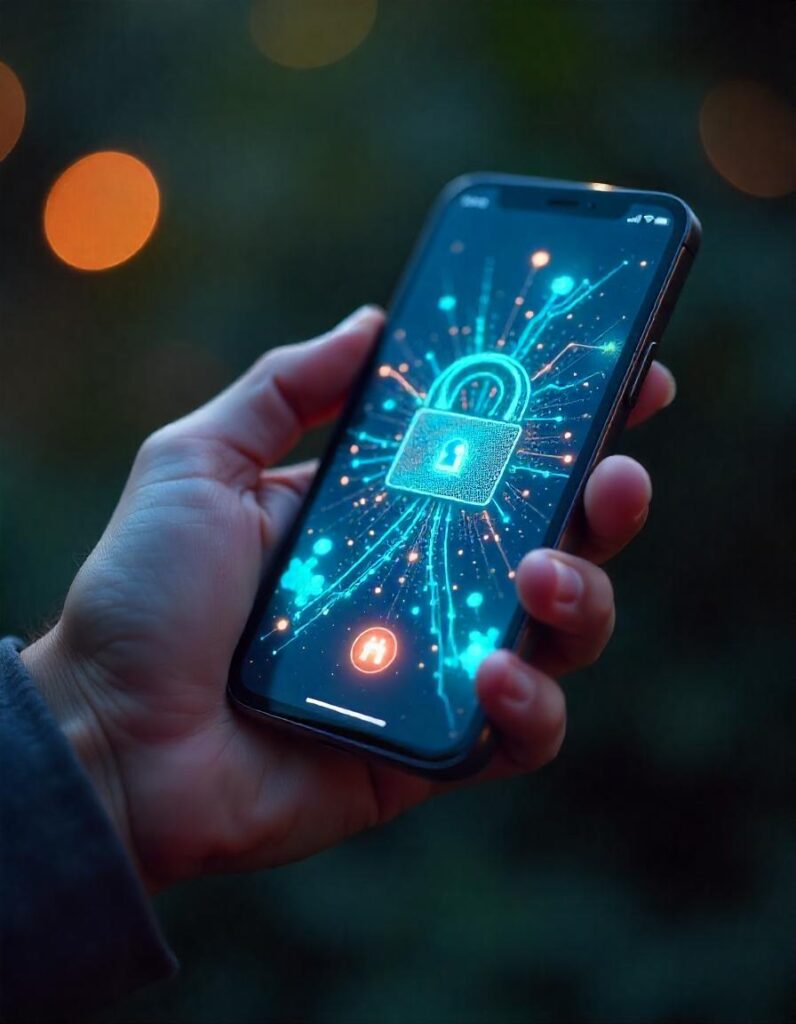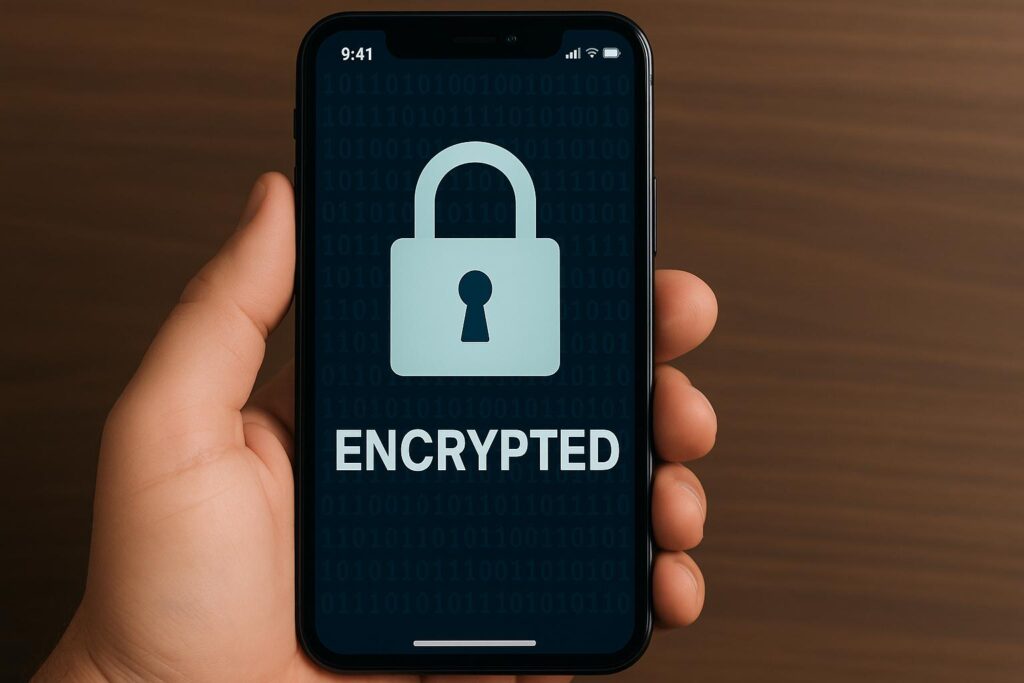An unbelievable 72% of senior executives are the prime targets for attacks by cybercriminals. This statistic comes from GetApp’s 2024 Executive Cybersecurity Report. At the time of this writing, the number is most likely higher. Sophisticated AI-powered deepfake phishing, vishing attacks, social engineering, and malware attacks clearly show a trend of CEOs and other senior executives being singled out because of their positions in a company.
Therefore, executives and high-income individuals must have the proper tools to safeguard their data from the relentless onslaught of attacks from these criminals, and one such tool is encrypted smartphones.
In light of these threats, such as recent telecom breaches and ransomware attacks on retail giants, it shows clearly the vulnerabilities in mainstream mobile communication. For CEOs, whose communications often involve confidential deals, sensitive financial data, and strategic decisions, the stakes are too high to ignore.
To combat this, CEOs and high-net-worth individuals are increasingly choosing encrypted smartphones as their preferred mobile device, realizing that traditional smartphones are inadequate in terms of security and are, actually, a liability.
In this article, we’ll be taking a look at encrypted smartphones: what they are and why business leaders and high-income individuals are using them. So let’s get to it!
Jump To:
Toggle
Why Traditional Smartphones Are No Longer Enough
Everyday smartphones like iPhones and Androids are basically designed and engineered with mass convenience in mind. Sure, they offer encryption for certain activities (e.g., iMessage, WhatsApp); however, these protections are generally limited by default settings or a dependence on third-party apps.
Critical data is usually stored in cloud backups, and many features, such as microphones, cameras, location tracking, and biometric access, can sometimes be accessed remotely or manipulated through malware.
For CEOs and other senior executives in a company whose communications involve confidential deals, sensitive financial data, and strategic decisions, this creates multiple points of failure, and as such the risks are unacceptable.
If not properly protected, business emails, confidential financial details, and internal communications may be monitored, intercepted, or even leaked. High-profile individuals are especially vulnerable to:
Background data collection: Apps and system processes collect personal and corporate data by default.
Cloud backups: Sensitive messages, photos, and documents are often automatically synced to third-party servers. Think of your Google account that stores your photos and documents.
Voice assistant eavesdropping: Microphones can be accessed remotely.
Malware and spyware risk: The more that you use, the greater your exposure to malicious software.
Spyware attacks (e.g., Pegasus-style surveillance tools)
Social engineering via leaked contacts
SIM swapping and phishing
Geolocation tracking in real-time
For CEOs and other senior executives in an organization, it goes way beyond just a privacy concern; it’ can be a corporate security liability. If confidential information gets leaked, it can impact shareholder confidence, breach confidentiality agreements, and even negatively affect competitive advantage. Traditional smartphones are simply not designed with the right architecture and user-level controls necessary to block these threats at the source.

What Are Encrypted Smartphones?
I sometimes like to think of encrypted smartphones like fighter jets, designed to get to a location but also designed to repel an attack. Whereas traditional smartphones are like airliners designed for the masses. Encrypted smartphones are purpose-built to eliminate unnecessary exposure and offer full control over hardware and software functionality. These phones are engineered from the ground up to ensure maximum data privacy and communication integrity.
They usually include:
End-to-end encrypted messaging and voice calling with no default reliance on any third-party cloud services.
Minimal telemetry. These phones do not collect or transmit user data to cloud servers.
No pre-installed commercial apps or ad-tracking frameworks, and no fingerprinting.
Custom, hardened operating systems such as GrapheneOS, CalyxOS, or PureOS. The operating systems are open-sourced and are more tightly controlled, with a focus on security and enhanced protection against exploits and surveillance.
Hardware kill switches physically disable the microphone, camera, radios, and cellular antennas, ensuring tamper-proof peace of mind. This type of protection is a feature that traditional smartphones lack.
End-to-end encryption for calls and messages: Built-in secure communication, no need for third-party apps.
These secure smartphone alternatives to iPhone and Android are changing how executives communicate, travel, and make high-level decisions. Where traditional phones prioritize features, encrypted phones prioritize boundaries.
Why CEOs Are Switching to Encrypted Smartphones?
Recently we’ve seen attacks on telecom providers, retail giants, and even political campaigns that have emphasized the need to improve mobile security. In response, many executives are leading the move to encrypted phones, and for good reasons:
Mitigate reputation risk: This is just a fancy way of saying executives are taking the necessary steps to prevent situations where leaked communications, exposed location data, or unauthorized access to sensitive information can damage brand trust. Executives are fully aware that these issues can undermine stakeholder trust, damage business relationships, and trigger negative media coverage or public backlash.
Prevent corporate espionage: Encrypted smartphones can help executives ensure calls, texts, and emails that may contain trade secrets, merger discussions, or intellectual property stay secure and private.
Comply with regulations: Encrypted smartphones help businesses comply with GDPR, HIPAA, and other data privacy mandates.
They Help Set a positive example: Cybersecurity is a culture, and when the C-suite prioritizes secure practices, like using encrypted smartphones, it can spread to the rest of the organization.
The Rise In Use of Encrypted Smartphones by Executives
As mentioned at the beginning of the article, there is a growing trend targeting executives and high-net-worth individuals. Here are just a few real-world events that have accelerated executive interest in encrypted smartphones:
Salt Typhoon Cyberattack
This attack affected core telecom networks across the United States, including providers such as Verizon and AT&T. The FBI and CISA responded by urging individuals in sensitive roles, to adopt encrypted communications (like encrypted smartphones)
Marks & Spencer and Harrods Attacks
Retail giants Marks & Spencer and Harrods suffered major ransomware attacks that exposed customer data and disrupted operations. The attacks led to a loss of over £700 million for M&S.
2024 US Presidential Campaign
During the 2024 presidential election, the Trump campaign suspected that foreign governments (i.e., state-sponsored actors) were trying to spy on them. Their response was to adopt secure laptops and encrypted smartphones with hardened operating systems.

Main Benefits of Encrypted Smartphones for Business Leaders
1. Confidentiality by Default
Confidentiality is the MO for encrypted smartphones; they use built-in end-to-end encryption for all voice calls, texts, and messaging. Unlike standard phones that rely on external apps for privacy, encrypted smartphones are secure from the outset.
2. Data Ownership and Control
Unlike operating systems like iOS and Android that are found in normal smartphones, encrypted smartphones have custom privacy operating systems like GrapheneOS that are hardened against malware and don’t support telemetry. You can’t download just any app, which is the point.
3. Hardware-Level Protection
Unlike traditional smartphones, encrypted smartphones have physical switches to disable radios, mics, and cameras. This unique feature allows encrypted smartphones to remove digital eavesdropping tools entirely from the equation.
4. Reputation & Risk Management
We touched on this in an earlier section. Leaked communications can severely affect an organization negatively by tanking deals and ruining public trust. Encrypted smartphones give CEOs a layer of plausible deniability and security against leaks.
5. Improved Executive Reputation & Legal Resilience
Executives who use encrypted smartphones demonstrate proactive risk management, by building trust among shareholders, partners, and regulatory bodies.
Top Encrypted Smartphone Options for Executives
Let’s take a look at some of the best encrypted smartphones on the market today.
- OS: PureOS (Debian-based)
- Features: Hardware kill switches, OpenPGP smart card support, Linux-based security
- Best for: Technically savvy executives seeking total system transparency
- OS: Bittium Secure Suite
- Features: Dual-boot (secure/public), IP67 rugged build, enterprise-grade mobile device management (MDM)
- Best for: Government, defense, and enterprise C-suites
- OS: Modified Android (hardened for security; no Google services)
- Key Features: End-to-end encrypted voice, video, and messaging via Silent Phone, Multi-IMSI global SIM (connects to strongest available network),
PRIVY Chat & PRIVY Vault for secure messaging and file storage. Tamper-resistant design with remote wipe capability. No telemetry or ad tracking. - Best For: Executives handling sensitive communications. Privacy-focused professionals and public figures. Government and defense personnel requiring secure mobile operations
Silent Circle Blackphone and Blackphone 2
- OS: Silent OS (Android-based)
- Features: Encrypted calls/texts, secure conference calling, custom VPN.
- Best for: Executives needing a balance of usability and privacy.
Google Pixel Models
You can install GrapheneOS on certain Google Pixel models. In this way, a “traditional” smartphone can have nearly the same level of protection as an encrypted smartphone. However, the Google Pixel smartphone lacks a physical kill switch.
Encrypted Smartphone Vs Traditional Smartphones
| FEATURE | ENCRYPTED SMARTPHONES | REGULAR SMARTPHONES |
|---|---|---|
| Security | Military-Grade Encryption, Hardened OS | Standard encryption, commercial OS |
| Data Sharing | No Telemetry, No Cloud Sync | Frequent Cloud Backups and Analytics |
| App Ecosystem | Curated or Open-Source Only | Full Access to App Stores and Tracking SDKs |
| Tracking | Disabled by Design | Location, Usage, and Ad Tracking Active |
| Hardware Control | Physical Kill Switches | Software Toggles Only |
| Target Users | CEOs, Executives, Privacy-Focused Users | General Consumers |

When and How to Make the Switch
Executives that use secure devices are generally harder to manipulate, impersonate, or extort. That translates directly to business resilience. Switching to encrypted smartphones can be straightforward if done properly. Here’s how:
Identify Your Role
If you’re in a high-risk position like a founder, CEO, CFO, general counsel, or other senior executive, then you should adopt secure devices like an encrypted smartphone and a secured laptop. This is because the information you possess is perhaps the most sensitive and confidential in the organization.
Choose Trusted Vendors
When selecting your encrypted smartphone, try to stay away from knock-offs and obscure providers with vague privacy claims, closed systems, or ties to surveillance-heavy regions, as these won’t provide the level of security that’s best for you. Make sure to properly vet providers and look for vendors known for transparency and strong security practices. Brands like Purism, Bittium, Silent Circle, and those supporting GrapheneOS offer proven protection and open documentation.
Train Staff and Support Teams
As an executive or high-income individual, you would most likely have assistants. You must always make sure your assistants, legal teams, and support staff understand encrypted workflows and how to use encrypted smartphones. Support staff, internal communications teams, and legal advisors should all be trained to use secure communication protocols confidently and correctly.
Separate Personal & Professional Devices
For official business activities, you should use your encrypted smartphone. These devices should only be used for professional activity. If you need to connect to apps like Gmail and Instagram, you should use other devices.
Use with Secure Software
Encrypted smartphones already offer increased security compared to traditional smartphones. So why not up the security by also using encrypted apps like Signal, Session, or Element? For voice, consider Silent Phone or Wire.
Conclusion
The increase in attacks on organizations and their leaders, which has resulted in data theft, digital espionage, and extortion through ransomware, has solidified the argument for using encrypted smartphones.
These devices, through their increased security, empower CEOs and executives to regain control over their communications and shield their most sensitive communications from prying eyes. Don’t think for a moment that the shift to these devices has anything to do with paranoia, because it doesn’t; it’s about being proactive and prepared for the threats that affect all companies and their CEOs.
Are you already using an encrypted smartphone? Or perhaps you’re thinking about using one soon. Drop a comment below to tell us more!
Frequently Asked Questions
Will it limit my ability to use everyday apps?
Yes, and that’s intentional; it’s also a good thing. Many of the apps we use tend to have tracking abilities, which is a security hazard to say the least. To access everyday apps, you can use web-based alternatives on hardened browsers like GrapheneOS, because they have limited permissions, no embedded trackers, no background activity, and are mostly easier to monitor and audit.
Can I receive work emails?
Yes, you can, but preferably through secure, encrypted email services like ProtonMail or Tutanota, and not from email providers like Gmail or Outlook.
Are they difficult to use?
Not at all. In fact, most encrypted phones may actually be easier to use because of their simple interfaces. In addition, you’ll likely be using fewer apps overall as well.
Will I need to ditch my current number?
Not necessarily. VoIP tools or forwarding services can route calls securely from your number to the encrypted smartphone. However, it’s a good idea to get a dedicated number for your encrypted smartphone.







